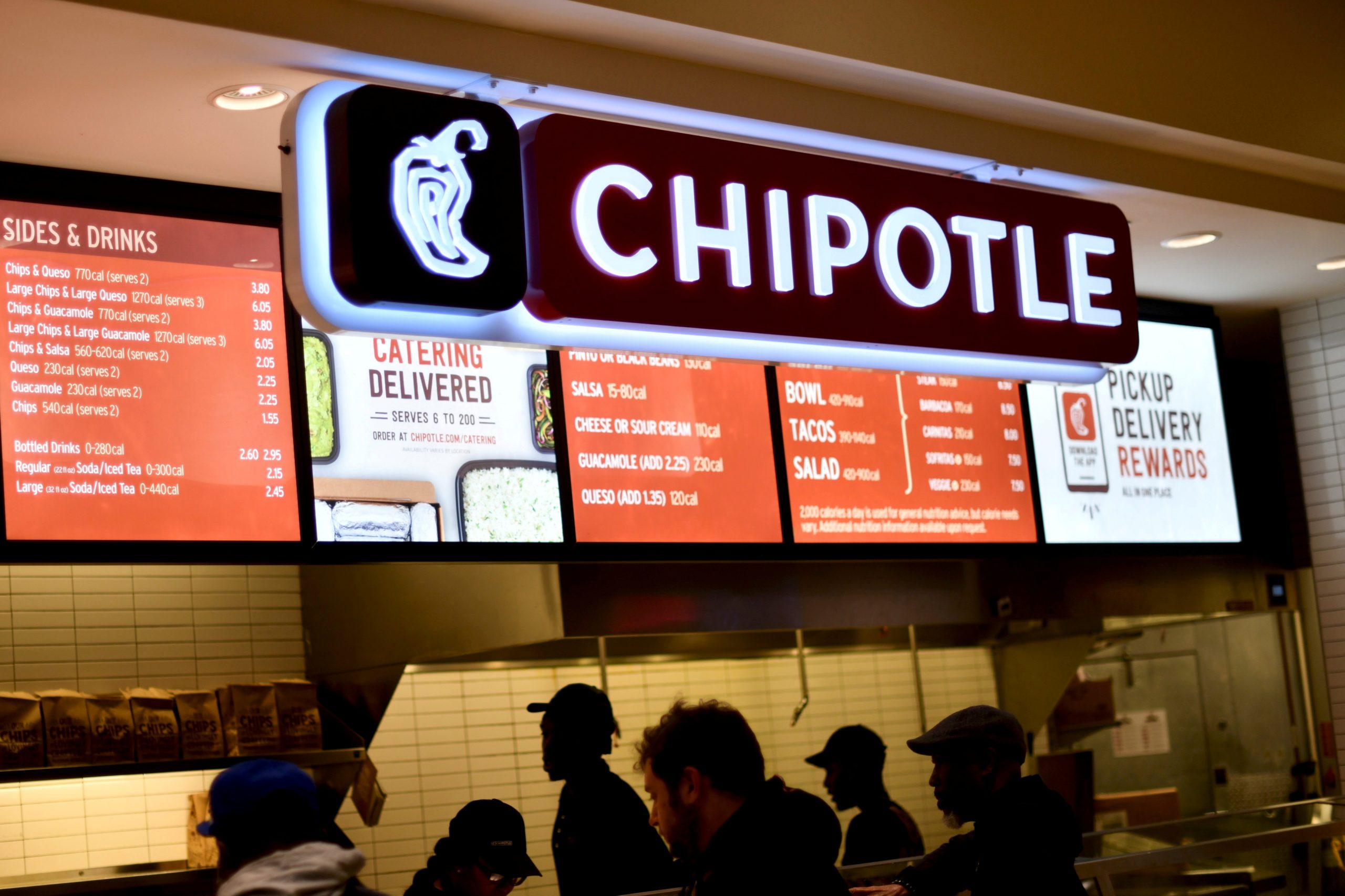Do you want to pay more for your Chipotle burrito? Put a $15 minimum wage into effect.
In the company’s quarterly earnings call on Wednesday, Chipotle’s chief financial officer, Jack Hartung, said the fast-casual restaurant chain would see a significant increase in labor costs if a national $15 minimum wage hike is implemented, Business Insider reported.
President Joe Biden announced his support for raising the federal minimum wage to $15 an hour in his first speech of the campaign, and many other Democrats are pushing for it.
Hartung called the upward price pressure of such a hike “manageable,” saying it would represent a 10 percent increase in average wages for the chain.
“We’re not that far off of, like, for example, a $15 number. But let’s say, for example, that there’s going to be an across-the-board 10 percent increase in our wages,” he said. “And that would, to offset that with menu pricing, that would take us 2 percent to 3 percent price increase.
“All of that is very manageable,” Hartung added.
This would result in a $0.20 to $0.35 additional cost per meal if the price increases were what Hartung said they would be, Business Insider reported; the average Chipotle customer spends $11 on a meal there.
However, overall wages would increase by 15 percent for all employees and 35 percent for entry-level employees. While Hartung was clear on what he predicted the effect on the chain’s prices would be, he didn’t provide any information on how that would affect jobs or hours going forward.
If there is a national minimum wage increase to $15 an hour, Chipotle won’t be the only business raising prices, either. Business Insider reported Nov. 25 that several chains it talked to said they’d be raising their prices if there was any national $15 legislation.
“Ultimately in any business, the customer pays for everything,” Waffle House CEO Walt Ehmer said. “We don’t have any other source of revenue other than the customer.”
The Cheesecake Factory, Kura Sushi and Texas Roadhouse have all raised prices in response to $15 minimum wages in certain locales.
“I would say there is a short-term shock,” Texas Roadhouse CEO Wayne Taylor told investors the month prior. “And then long term, there’s an adjustment, both on our side and the guest side.”
The question is how that adjustment happens — and more importantly, how local businesses are able to deal with it. In an interview last October, Hartung said, “If there was some kind of a sudden jump to $15, I think it would hurt a lot of the smaller companies out there,” according to The Wall Street Journal.
Small businesses have been hit the hardest by the pandemic shutdowns; any move to a $15-per-hour minimum wage might be “manageable” for chains like Chipotle, but for single-business restauranteurs or small business owners, it could be fatal. For those considering making the jump, it might be enough to dissuade them.
And there’s no guarantee this would make minimum wage earners any better off.
Take McDonald’s, for instance. In a study published in February by the National Bureau of Economic Research, Princeton economist Orley C. Ashenfelter and Czech economist Štěpán Jurajda found prices at the ubiquitous fast-food monolith increased in cities and states where $15 minimum wages were in effect.
“Our data imply that McDonald’s restaurants pass through the higher costs of minimum wage increases in the form of higher prices of the Big Mac sandwich,” they found, noting there was a “full or near-full price pass-through of minimum-wage-induced higher costs of labor.”
In a Foundation for Economic Education piece, Brad Polumbo said this would get passed on to the same minimum wage earner a $15 minimum wage purported to help.
“If a McDonald’s cashier’s take-home pay increases 20% after a minimum wage hike, but the prices for the food and other things they spend their wages on increase by a similar amount, they aren’t actually any better off. This would happen throughout the economy, not just in fast food,” Polumbo wrote.
For right now, there’s no federal $15 minimum wage; an attempt to include it in the $1.9 trillion COVID-19 relief package Senate Democrats approved on a party-line vote didn’t pass muster with the Senate parliamentarian. Any legislation that puts a minimum wage hike into effect, therefore, will have to get 60 votes in the upper chamber to clear the filibuster hurdle, or Democrats will have to do away with the filibuster.
However, liberal cities and states around the country continue increasing the minimum wage. For Chipotle, that might be “manageable.” For you, it could be, too.
For the person behind the counter, it could be anything but. For the person who can’t even get behind the counter because he or she can’t get a job, it’s not particularly manageable, either.
Let them be a reminder good intentions don’t make good policy.
This article appeared originally on The Western Journal.

























 Continue with Google
Continue with Google